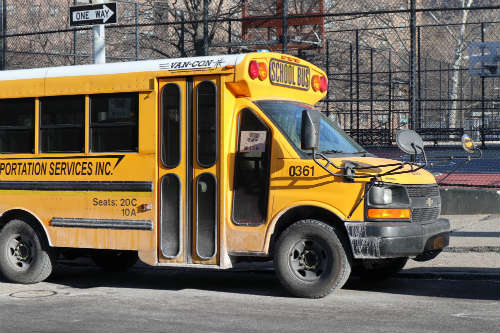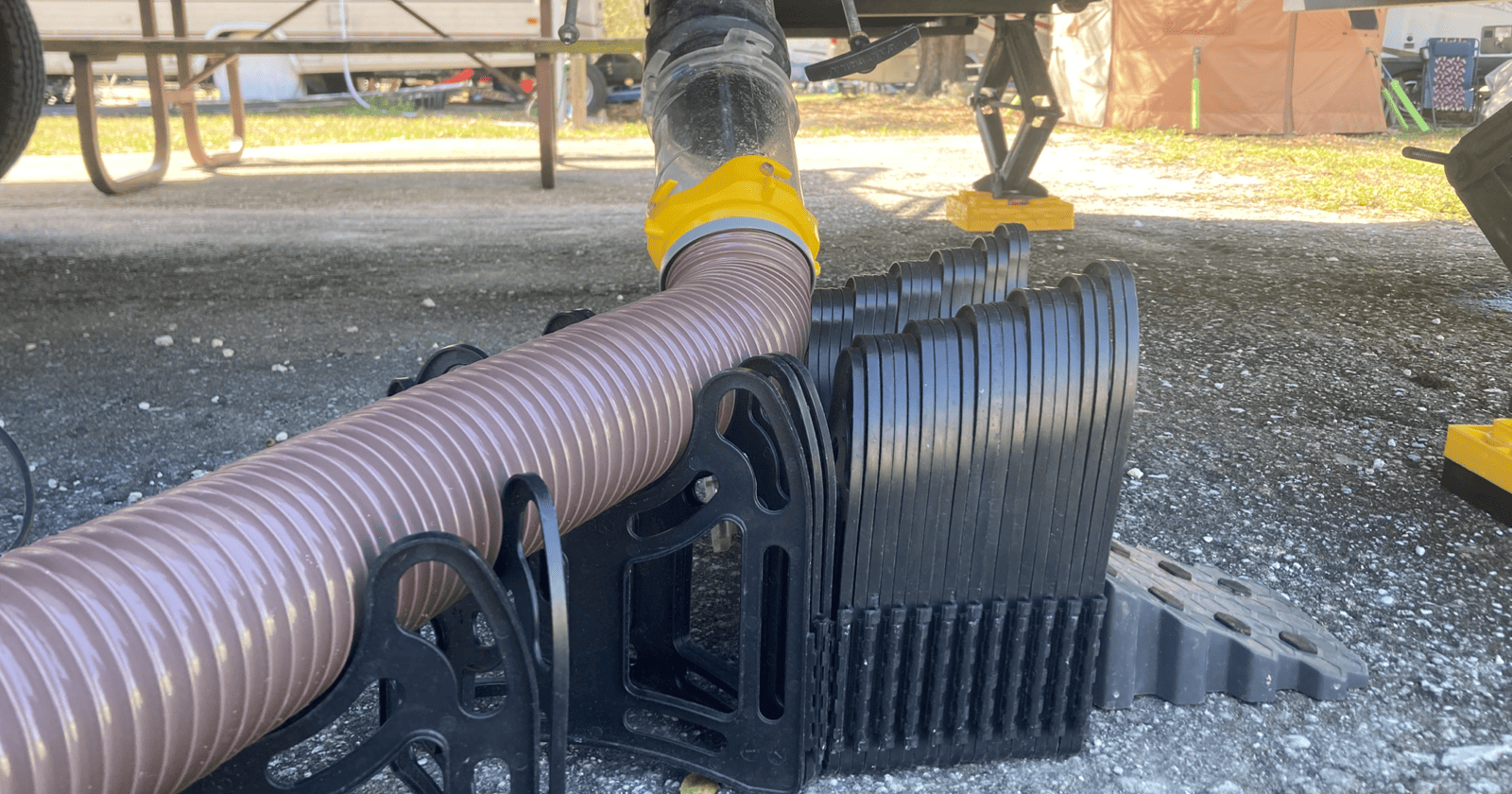In today’s RV market, there are many configurations you can choose from for your interior. The engineers that design them understand that people have different needs, and try to cater to them. Some offer bigger kitchens, bunk beds, or a bigger master bedroom, to name a few. For example, the Forest River Georgetown 5 Series GT5 offers four different layouts. Its sister coaches, the XL, and the Series 3 GT3 offer three and four configurations respectively.
What if you want something more specific to your needs and wants? There are a sub-group of RVers that prefer to build it their way. They buy decommissioned buses and rebuild them. If you search the internet, you can see stunning photos of how people have turned these school buses or passenger buses into rolling homes.
It takes some effort, but you can register a bus as an RV. Each state has its own variation on what the requirements are, but it can be done. If you choose to go this route, the steps below will walk you through what to expect when working with your State’s Department of Motor Vehicles (DMV).
Register Your Bus as an RV General Requirements

To register your bus as an RV, always contact your DMV first. More than likely, your local DMV representative may not know what the guidelines are. They will probably direct you to one of the bigger DMVs or one that specializes in special circumstances.
Below is a general list of requirements that most states adhere too. Some are more detailed than others, but you should prepare yourself for the following:
- Current Title: You will want to have the current title to your bus. If you do not have it, then you will want to follow the steps to gain a salvage title. Your bus may not be damaged, but just maybe so old that the original title has been lost. Each state has its own requirements, so make sure you know what you need ahead of time.
- Bill of Sale: A bill of sale is simply a receipt of purchase from the seller to the buyer. For it to be acceptable, it should state certain information. Your DMV may have a downloadable form you and the seller can fill out to keep things organized. Otherwise, your DMV will have their requirements on their website. Generally, here is what is usually needed:
- Date of purchase
- Amount paid in U.S. Dollars
- The seller’s name, address, and phone number
- The buyer’s name, address, and phone number
- A description of the vehicle including year, make and model
- Vehicle Identification Number (VIN)
- Warranty information (does the vehicle still have an active warranty? Does the seller or manufacturer offer a warranty? What are the conditions of the warranty? etc.)
- Certification of Weight: In your local area, find a place that has scales under the roadway that weighs vehicles. You can find many of them in truck stops, garbage dumps, recycling centers, or truck repair shops. When you call around, you want to ask if they can certify your weight. If they do, they will have an official form they can give you that the DMV will accept.
- Photos of Your Conversion: When you send off your application with your documentation, the DMV will want proof you have converted the bus already. Take pictures of the interior and exterior highlighting the modifications you have made. Some states are going to require that you remove official equipment like flashing lights and folding stop signs. They will give you the details about what needs to be removed.
- Inspection: Your DMV may require a physical inspection of your bus. They do this to verify you have made the conversions. Also, the bus meets the Department Of Transportation (DOT) safety guidelines for the road. Be prepared to make a long drive. There may be only a handful of DMVs that have the resources to do the inspection. When you contact the DMV, find out what documentation you need with you while driving. Since you do not have your title and registration yet, the original title and bill of sale may be acceptable.
- Proof of Insurance: Have your insurance policy in place ahead of time. Based on research, two insurance companies handle converted bus RVs: National General and Good Sam. The insurance company may want some documentation we have already mentioned. Things like a copy of the title, bill of sale, photos of the conversion, and other pieces of information.
- Meet the Definition of an RV: Each state has its own variation, but they define an RV by having the following things permanently installed.
- Designated sleeping area with bed(s)
- Bathroom facilities
- Food preparation area
- Stove with a fuel source (propane or electric)
- Installed refrigerator
- Water source (freshwater tank and/or a connection to a shore water source
- Electric-system installed (those states that require this will want to verify it is at least 110 volts)
- Driver’s License: One last thing you may need to do is upgrade your driver’s license. If your converted bus weighs over 26,001 pounds, you will need to get a big vehicle license. This is not the same thing as a Commercial Driver’s License (CDL). You will want to look for the requirements for a non-commercial class B drivers license. In California, they call this a “House Car” license. People that own RVs larger than 40 feet and overweight are required to get this license (if the state requires it).
The State Of Vermont: an Exception to the Rules

As of 2018, The state of Vermont is an exception to other state requirements. Their requirements are more lenient than the other states. To register your bus as an RV, they do not require proof of conversion, insurance, or an inspection. They will register your bus RV even if you are not a resident of Vermont.
The steps below outline what Vermont will need to register your bus as an RV.
- Age of the bus: There are two results you can receive from Vermont. Either a title or a transferable registration. If your bus is less than 15 years old, then you can get a title. Otherwise, they will give you a transferable registration. The transferable registration is used when changing the registration to another state. This is not as good as a real title. It will give you the documentation you need to register and title your bus in your home state.
- Vermont’s form: On their website, you can download a copy of the VD119. This form is the application you will need to apply for the retitling. When complete, send it to:
Vermont Department of Motor Vehicles120 State Street
Montpelier, VT 05603-0001
Make sure to include the other documentation you will need. - The documentation you will need: You will still need to send them the existing title and a bill of sale. We recommend you check the State of Vermont website to confirm this to make sure their application requirements have not changed. Once you send everything in, allows 4-8 weeks to receive your title/transferable registration and license plate.
Convert a Bus to an RV: Is It Worth It?

Ask anyone who has converted a bus to an RV, and they’ll tell you it was a labor of love. It can feel like rebuilding a hot rod. Your design can have everything you want inside. You will know how to repair everything and know the quality of materials used.
A bus’ engine, transmission, and other automotive parts are built to last. Many of the engines can have a rating of lasting over one million miles or more. You will want to have your bus checked out by a professional diesel mechanic to make sure everything is in proper working order.
Cost considerations can be similar or less expensive than some high-end RVs. Buses have a steel chassis and aluminum bodies. Attaching cabinets and other permanent fixtures can be straight forward.
Before the bus itself, the average cost of converting a bus is between $10,000 to $40,000 or more. This cost is based on how many amenities and the quality of the amenities you build inside it. Most RV bus enthusiasts will recommend you try and find second-hand materials to save yourself money.
The cost of the bus itself can vary. It is possible to find one under $10,000. It may date back to the 1980s or 1990s, but remember, these things are built like tanks. They can last a long time as long as they were maintained correctly.
If this is the way you want to go, the conversion of the bus itself can be just as memorable as traveling in it. Make sure you do your research into what it takes to convert your bus. You do not have to be a professional builder, but you do need to know what you are doing.
In the RV community, help and advice is only a question away. People love to share their stories and offer their expertise to others that want to get into the lifestyle. Join a chatroom and read through blogs to meet the people that have already done this. They will tell you it was one of the best decisions of their lives. Happy Trails.
Product data was last updated on 2024-04-19 at 03:51.




